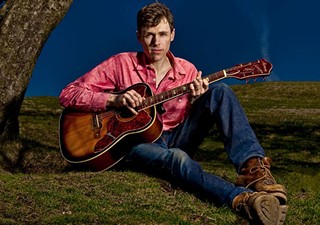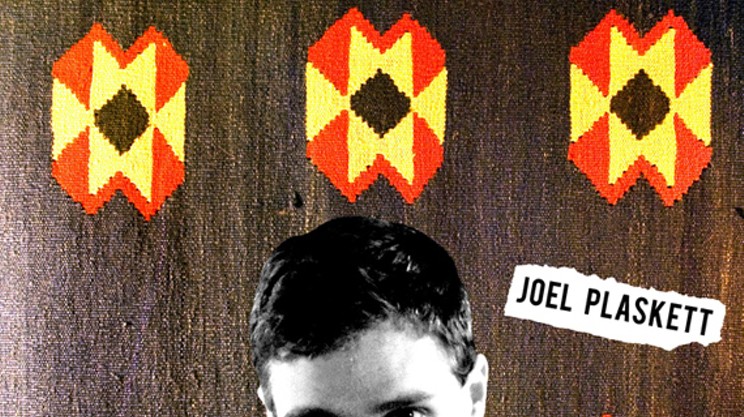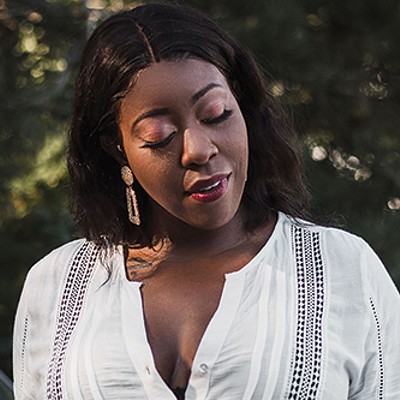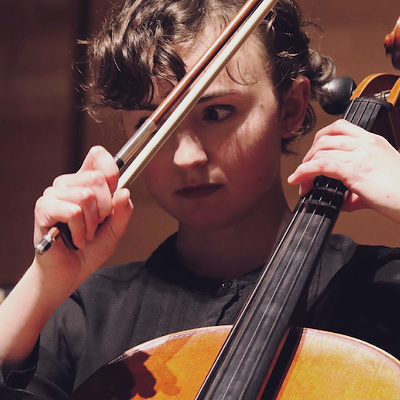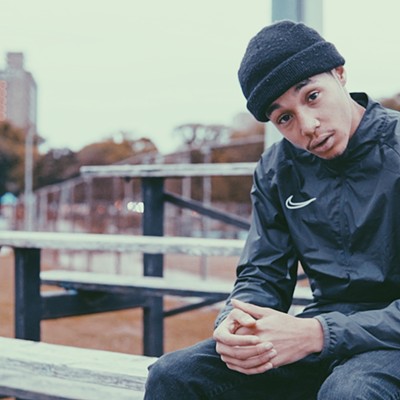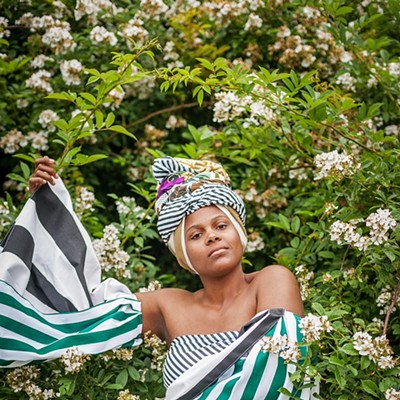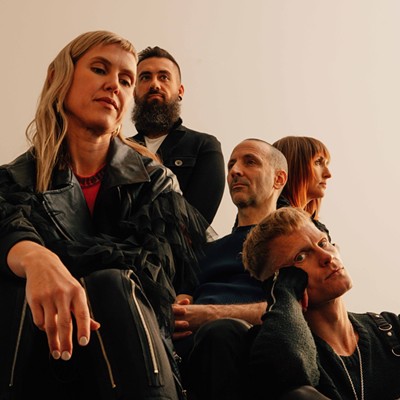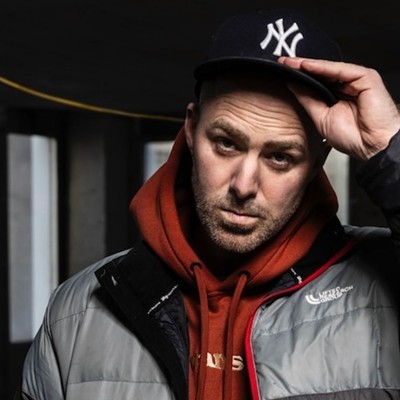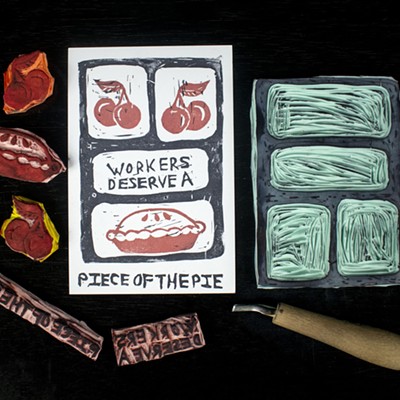Plaskett drives a Chevy Suburban. Since 2001, he's trusted the truck to take him here, there and everywhere, and that includes transporting him from stop to stop on tour. (Now there's an unexpected endorsement for the ailing GM car company.) But, the night before this midday conversation in mid-April---just days before he hits the road in support of his latest album, Three---there was a problem. (And there goes said endorsement.)
"The belt came flying off on the St. Margaret's Bay Road about 9:30 at night," explains Plaskett over coffee in Dartmouth, blocks away from where he lives.
Ah, the belt, of course, responds his companion. Um, which belt would that be? As it happens, it was the alternator belt. Damn, the alternator belt, that sucks. So, yeah, what does that do?
"It's a belt that does a bunch of things," Plaskett responds pleasantly, though picking up on his fellow conversationalist's blank stare.
The belt keeps the alternator charged and regulates the flow of fluids, he explains briefly. Once loosened from its pulleys, the truck's batteries started to die, lights were lowed, then lost and the heat ceased.
Then the truck stopped dead. "I just thought, 'This better not be a bad sign.' I've never had to get that truck towed before," Plaskett says. A call to CAA was made, he got towed and the truck fixed. Ready for the long road ahead.
Joel Plaskett is driving this venture, this adventure. As listeners, we're all his passengers, with plenty to gain from the journey.
His triple album tells a story in three parts: a story, Plaskett says, of "going away, being alone and coming home."
On disc one of Three he examines the act and effect of leaving home and loved ones---watching them get smaller and smaller in the rearview. The movement is perfectly drawn and drawn out over nine songs.
The eighth of nine tracks, "Wishful Thinking," for example, pins down the visceral feeling of tearing oneself away to go to work, whether far away or just for the day---everyone can relate because that's what work requires of each of us.
Plaskett plays the guitar parts and bass over the song's electronic drumbeat; the rhythmic track shuffling along and dragging its feet at the same time, reminding how everyday we're torn between work and life, responsibility and love.
Though not printed in the lyrics on the liner, Plaskett sings: "You put some gas in your tank/you put some air in your lungs/'cause you know that there's a song that's gotta get sung." And then he sings the next line (which is printed): "'Cause it's a long, long way to Winnipeg."
Rose Cousins and Ana Egge, who sing throughout Three, sustain the syllable "'peg" in unison for almost 20 seconds (roughly timed using a stereo counter). It's a brilliant piece of technical and emotional delivery, giving a slight optimistic goose to a song exploring the flagging spirit and sense of fatigue that arises from hours, days and weeks on the road.
"They're such good singers. They just hold the note and it doesn't waver," Plaskett says. In the studio, he watched in amazement how they'd "lock" in sight and sound.
In a later conversation, when the tour stops in Toronto, Egge describes it this way: "My voice is really wide and warm and Rose's is really direct, even though we sing in the same register."
That song, "Wishful Thinking," was the first recorded for Three. Back in February 2008, Plaskett was attending the Folk Alliance in Memphis, where he'd also booked some studio time with Doug Easley. (He produced Thrush Hermit, Plaskett's old band, in 1996.) Before Plaskett went in to record, he bumped into singer-songwriters Cousins and Egge, who is based in Brooklyn.
Naturally, he invited them to come sing on the track. "I wrote a bunch of parts for them just on the fly when they got there," Plaskett remembers.
When he returned home, he set up his own studio, which he'd been planning to do. The songs and some phone calls followed. "I contacted Rose and Ana and asked them, 'Do you want to sing some more?'"
Every place has its own energy; tension. Here (Halifax, Nova Scotia), it arguably arises from the fact it's on a coast, an edge. This is a borderland between land and sea, which is not just a geographic reality but a psychological one, too---a state of being in between (sometimes stuck, other times secure).
"There's a push and pull in this part of the world," agrees Plaskett. "I always think of Halifax in terms of a balancing act." For a musician, he says, it can be between the impulse to make art and the demand to provide entertainment, or staying here versus going elsewhere.
Plaskett has often used tours---"being alone" and far from home---to reflect on the place where he lives. A tour in Australia gave disc two of Three its reflective, melancholic tone, Plaskett says. "Being surrounded by people who have no context for where you're from...Nova Scotia is only a dot on the map to them.
"And the time zone difference is so extreme, when you call home you can't even hope to be on the same page. I'd be talking to Beck (his wife, artist Rebecca Kraatz) and she'd be going to bed."
The dislocation comes through clearest on "Shine On, Shine On, Shine On" and "Sailor's Eyes" (reminiscent of The Waterboys' classic, Fisherman's Blues). These two songs embrace folk tropes (such as longing for home, the comfort and sense of self it offers while adrift in the faraway land) and musical motifs (the whistles of Jon Goodman and Roy McLaren and Amy Lounder's fiddle) in a way no indie-rock artist from here has in a long time, if ever.
"It's gonna push certain buttons for people," Plaskett says of the traditional music elements. "But I think of rock as traditional music now." With traditions, you can experiment and mess around.
Maritime folk has always found its way into Plaskett's music, a clue found in such places as the extro on Down at the Khyber. Perhaps the only difference now is in emphasis.
Plaskett enthusiastically advises a search on YouTube for performances by Irish singer Paul Brady who, in the late '70s, put out a couple of classic albums interpreting the old songs. "He's got this really high tenor voice. I heard him through my father."
The father has surely influenced the son, though a month later, Bill Plaskett downplays that fact on the phone (on his son's cell, passed from Egge). "Ours was a musical household," Plaskett senior says in his accent, courtesy of Dagenham, east of London. "We gave him free rein. Of course, I didn't want to see him become a banker." (Good thing: They're in deep shit like the auto manufacturers.)
The Plaskett family lived in Lunenburg during the early days of the South Shore town's influential folk festival. Bill played in Starboard Side, a band that recorded an album for CBC. (On the Three tour, the group plays one of Bill's songs and one by Egge and Cousins, too.) In the late '80s, the English and Irish folk song revival led the father to his own rediscovery of the music.
Still, Bill says, his son's evolution is natural and normal, "We all change as we age...I'm interested to see how that change manifests itself [in Joel's music]."
For the making of Three, Bill's been there from the beginning. Besides some writing and arranging, he plays bouzouki, acoustic guitar, tenor guitar, piano and sings on the album. "He has a really deft way of stepping in on stuff," says Joel of his father. "He really flows melodically in the way that he plays. He can walk between chords in a way that I've kind of inherited a little bit from him. I do this flighty version of what he does in a really grounded way."
"He would never hesitate to think tin whistles would sound great on this," offers Rose Cousins at a Halifax cafe, days before leaving on the national tour. She also remembers arriving at the studio for one session to Plaskett raving about J.P. Cormier "ripping" through a fiddle part, which he does on "Deny, Deny, Deny" on disc three of Three.
For Cousins, working with Plaskett, the lanky man at the wheel, taught her the value of creating without "inhibition." (Cousins begins recording a new album in September.) "He has music running through him all the time. He just has to get it out," she says.
Though he had the 27 songs roughly structured, Plaskett asked for input from all his collaborators and remained open to new ideas, says Cousins. The mood in the studio, she recalls, was always "relaxed and purposeful."
In a way, Three is a duet album. Plaskett describes the vocal roles of Rose Cousins and Ana Egge as the other speaker in a "dialogue," the other side of a conversation. (Their roles expand on stage to playing as well: Both are accomplished on guitar and other string instruments. Egge gets behind the drum kit, too, at various points during the tour.)
"Our vocals are not buried," Cousins points out. "He made us an essential part of the album. Sometimes we start a verse and sometimes he starts a verse."
Along with Plaskett's sheer enthusiasm and energy, Cousins was drawn in by the clarity, honesty and vulnerability of his words. "He does a really good job of being there."
Ana Egge has been receiving alerts about her own solo career; news of its development in the US, while touring for Three. The latest: Her 2009 album, Road To My Love, was added by 61 stations in America.
"I'm getting all this news about my life, like it's some other person," says Egge on a cellphone, backstage at Massey Hall in Toronto, where they're about to have a sound check.
She's toured Canada with Ron Sexsmith (in 2000) and played Halifax this past February for the In The Dead Of Winter festival, but Egge hasn't officially released a record in this country, she points out. "I have a lot of growth to do here."
Witnessing Plaskett on stage and in exchange with his audience has impressed Egge. "Joel's fans are so sweet and committed," she says.
Even before they went out on the road, Cousins predicted people would commit to Egge, especially when they hear her sing "All The Way Down The Line" with Plaskett.
"That song lets you know what kind of a singer she is," Cousins says. "She represents that role, the other person in that song, so well."
Plaskett and Egge connect on that song and also through their upbringings. Both grew up "skateboarding and listening to punk rock and skate stuff," but also with parents who introduced and immersed them in traditional music milieus.
In the Plaskett household, it was Maritime folk music. For Egge, born in Saskatchewan but raised in North Dakota and then New Mexico, it was bluegrass. She played mandolin and drums in high school, just like she's been doing on occasion during this tour.
As it turns out, there would be another mechanical malfunction hobbling the Suburban on its cross-Canada trip: a blown tire on the way to Winnipeg. "This is probably the last tour for the Suburban," announces Bill Plaskett from Toronto.
Papa Plaskett relates this latest indignity to the "faithful" truck with a tone of almost gleeful relief---that it's the boy's problem mainly, and not his---and reverence---that he's along for this unforgettable ride with his talented, accomplished son.
"There's been hugely enthusiastic audiences," he says. "I'm observing the real warmth people have for Joel."
Before taking the phone, he'd been photographing the stage at Massey Hall after the gear had been loaded in and set up. "This is a grand old theatre," he says.
He's closely observed the whole process of the tour---how sets have changed as the band has grown from the core four to seven (to include Pete Elkas and the Emergency---Dave Marsh on drums and Chris Pennell on bass). He's also gained a deep respect for sound technician Steve Smith. "He troubleshoots each and every room, which have been varied." He sets it all up "and he's slept in the van" to guard the equipment when needed.
This is the first time Bill Plaskett has toured across the country. He's using all his vacation from his job with the city.
As for reflecting on his own role in his son's band? "I'm present on several different levels," he says, then laughs. "Not a split place exactly: I'm involved with it, I'm playing, but there's a part of me up there on the wall observing."

